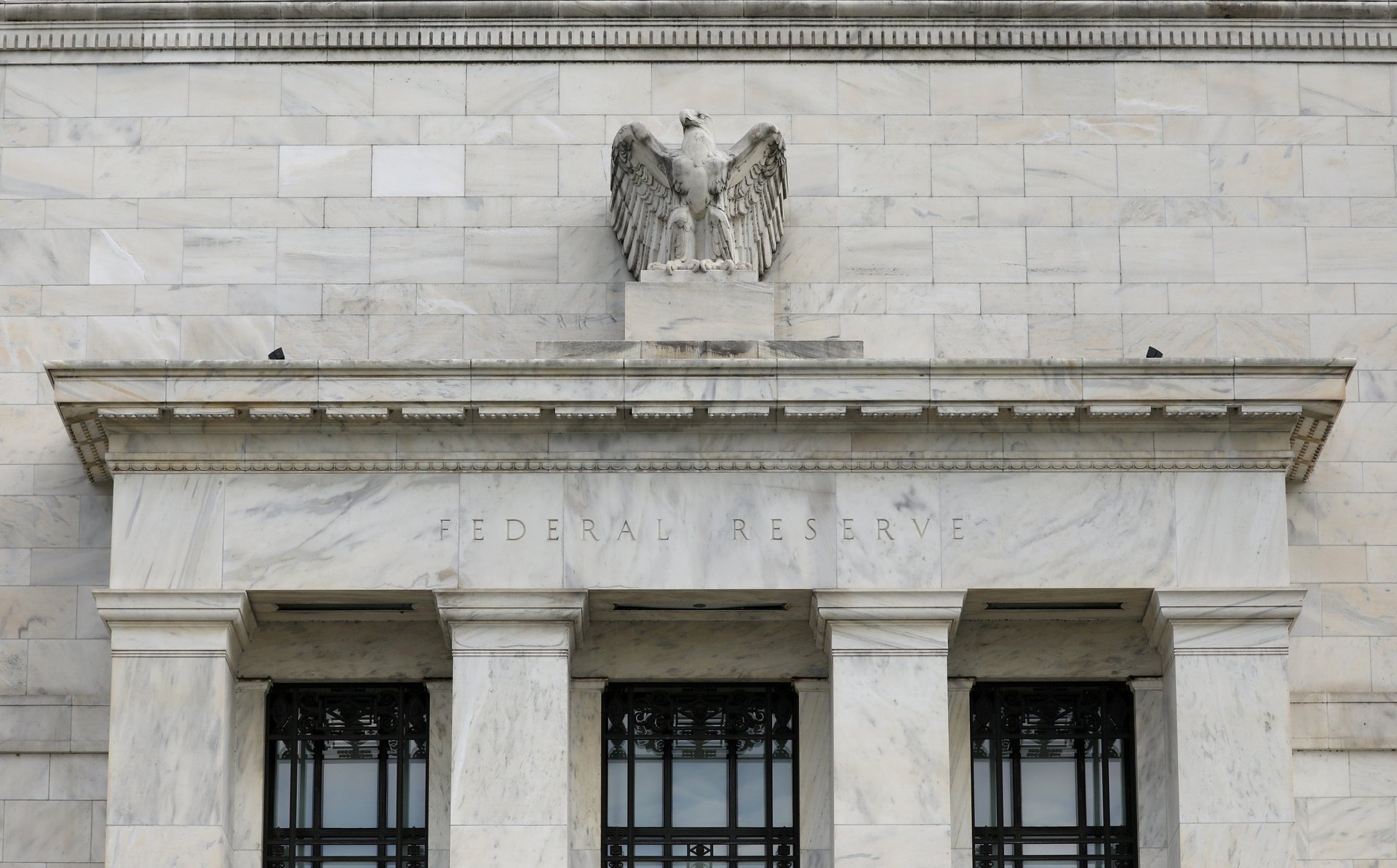Trump’s latest Fed appointee isn’t qualified—but that may not matter
Economic commentator Stephen Moore is US president Donald Trump’s most recent nominee to the Federal Reserve’s board of governors—and economists are furious.


Economic commentator Stephen Moore is US president Donald Trump’s most recent nominee to the Federal Reserve’s board of governors—and economists are furious.
The news has been met with a heady combination of derision, bafflement, and general hullaballoo, with Moore variously described as “a loyalist, not an expert”; a “famous idiot”; and the “living embodiment of the sucking intellectual void at the core of conservative economics.” At best, it’s a rogue choice for Trump; at worst, utterly feckless.
Though he holds an MA in economics from George Mason University, and formerly served as senior economist on the Congressional Joint Economic Committee, Moore is more famous for his work as a conservative commentator, which includes the book Trumponomics: Inside the America First Plan to Revive Our Economy, an enthusiastic defense of the president’s economic policies.
Moore has, in the past, supported a return to the gold standard, as well as encouraged Trump to fire Fed chair Jerome Powell on the basis that “he’s wrecking our economy.” (He also holds the uncommon distinction of being banned from the pages of the Kansas City Star.)
By his own admission, Moore is a surprising choice for the role: “I’m kind of new to this game, frankly, so I’m going to be on a steep learning curve myself about how the Fed operates, how the Federal Reserve makes its decisions,” he told Bloomberg. “It’s hard for me to say even what my role will be there, assuming I get confirmed.”
But none of this matters—because there’s good evidence to suggest that the former Trump campaign advisor will never make it through the doors of the Federal Reserve, and perhaps not even to a Senate confirmation hearing.
Normally, after being nominated by the president, each potential Federal Reserve governor heads to the Senate, where the Banking Committee schedules, and holds, a confirmation hearing. This is the first hurdle at which Moore may fall: the committee, chaired by GOP senator Mike Crapo of Idaho, may not schedule a hearing, as was the case with prior Trump nominee, Nellie Liang. Her nomination thus expired when the 115th Congress ended in January, and she withdrew herself from consideration.
Even if a hearing is scheduled, there’s reason to believe Moore may not advance out of the committee. That’s what happened to Trump’s other recent pick, Marvin Goodfriend, who reportedly appeared “ill-prepared” in his hearing—particularly in the face of aggressive questioning from Democrats. Though Goodfriend’s nomination was narrowly approved by the panel, concerns about a failure to collect votes in the wider Senate saw it languish for months on end, eventually foundering with the end of Congress.
It’s not even clear that the panel’s 13 GOP senators would be as supportive to Trump’s unorthodox nominee as they were to Goodfriend. Crapo has slowly come around to Trump, but there are others in the committee whose backing is less assured, including senators Jerry Moran, Martha McSally, Pat Toomey, and Tom Cotton. All four have wavered in their support for the president.
On the Senate floor, the nomination is even more unlikely to pass, requiring just three Republican nays to nix Moore’s confirmation. There’s precedent, too, in senators on both sides simply refusing to vote: a confirmation vote for former nominee Peter Diamond was blocked by Republicans in 2011, who claimed he was unqualified for the position. He was awarded the Nobel Prize in economics while waiting for the Senate vote.